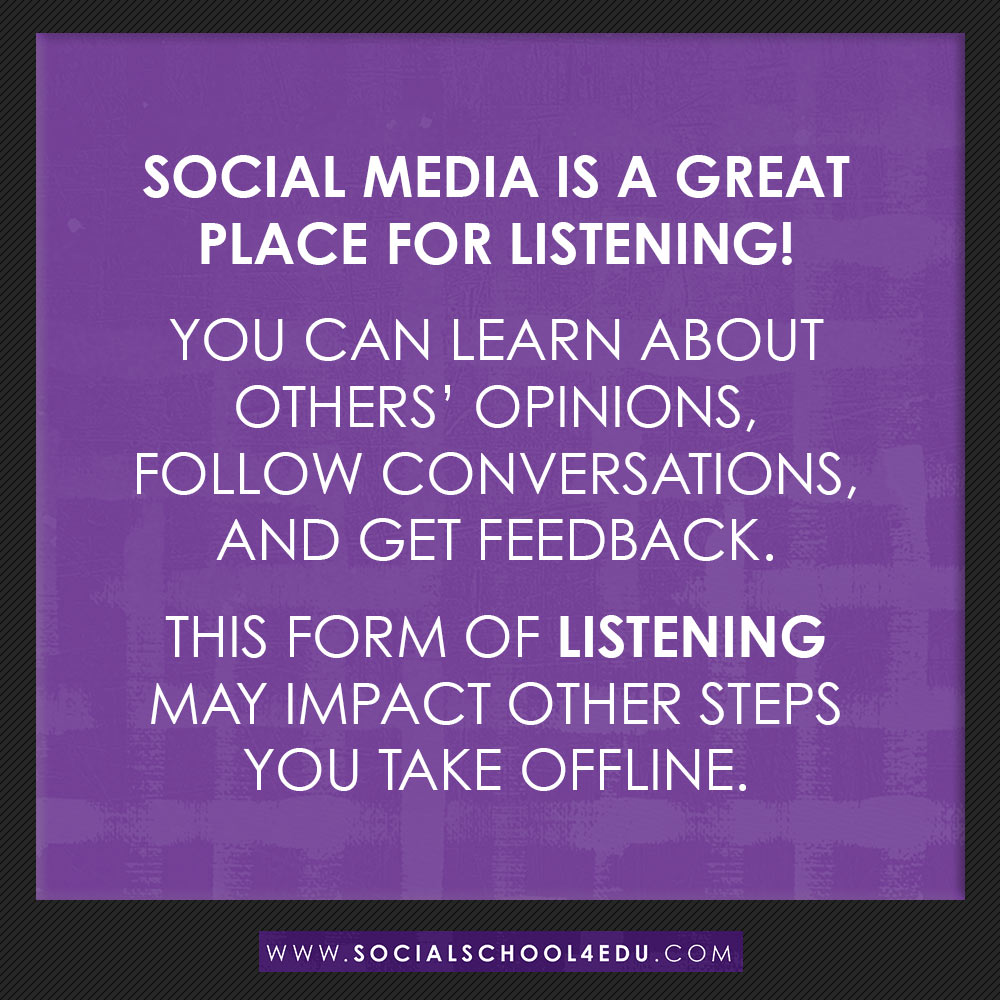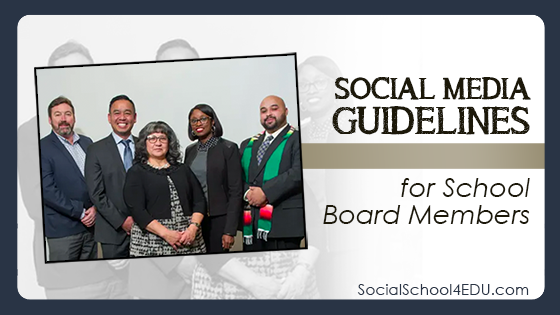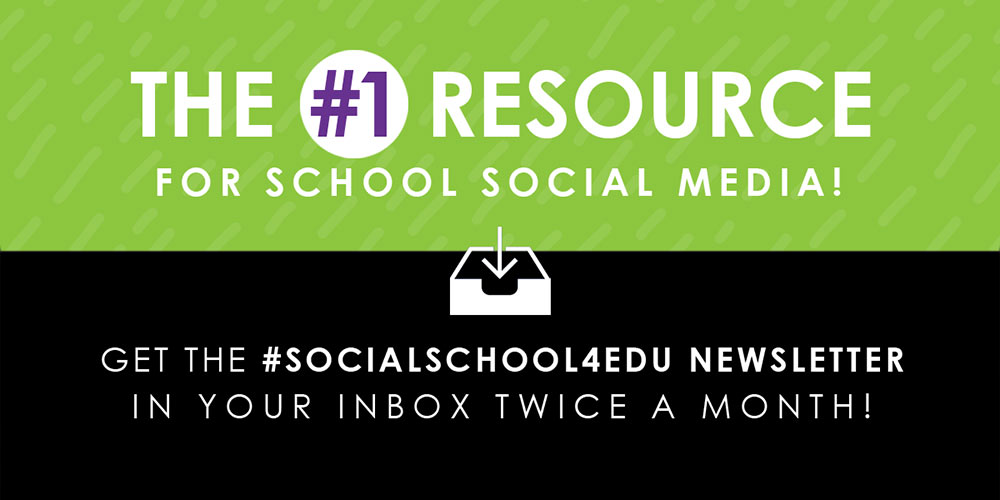January is School Board Recognition Month in many states!
Please celebrate your school board! They are dedicated to serving your district and deal with many complicated issues. They also work closely with parents, educational professionals, and other community members.
It’s not an easy job.
And now that we are in the year 2020, social media plays an emerging role that can add even more complexity to your board members’ responsibilities. Knowing how to use social media just for your personal use is challenging enough, but when you are an elected official for your district, how should it change?
Highline Public Schools in the state of Washington has a specific procedure when it comes to how school board members utilize social media. Tove Tupper, Assistant Director Of Communications, shared the reason behind creating these guidelines:
We use social media as a district to share the Highline story with our community, and connect with students, families, and staff. We want our board members to be able to do the same if they choose. These guidelines created specifically for our board members are meant to support them as they connect with our Highline community on social media and share the great work happening in our schools.”

The full policy can be found at this link. I’ve summarized the list here:
- Think before you post. Is this something that you do not mind seeing on the front page of the newspaper? Will this be something that you would want your own children or the students of the school district to see as a good example of the way to communicate or comment? Post responsibly.
- Be careful of what information you share. Do not share personal information about students, employees, yourself, other board members, and citizens. Likewise, do not share information that the school district has contractually agreed to keep confidential; for example, proprietary information, trade secrets, and security information. Think before sharing legally protected, privileged information, such as attorney-client, physician-patient, and other privileged information recognized by a court.
- Social media is not for private conversations. Face-to-face meetings or telephone conversations may be more appropriate.
- Don’t let negative emotions drive you to post or respond. Anger may cause you to post information that you will be sorry for later. Is this something that you would be ashamed of if you read it months or years from now? Remember that what you place on social media sites – and in emails, text messages, and chat rooms – can spread quickly and permanently remain on the Internet or in someone’s possession. Statements that are harassing, discriminatory, defamatory, and terroristic are not suitable and could subject board members, and possibly the school district, to legal action. Be polite.
- Use appropriate language. Do not use abusive, profane, threatening, or offensive language.
- Do not post on behalf of the school district. Do not post self-promotions, items for sale, commercial messages, and advertisements that are associated with the school district.
- Use social media for listening. Do not conduct board business on social media sites. Instead, use these sites for listening or reading about others’ opinions, making announcements, having conversations, and obtaining feedback.
- Comply with the law and relevant policies including school districts’ policies regarding acceptable use, student records, harassment and discrimination, and copyright laws; the internet service provider’s terms; the website disclaimers, terms of use, and privacy policies; and federal, state, and local laws, including the open meetings act and public records act. Also, respect the rights of other users to an open and hospitable technology environment, regardless of race, religion, creed, color, national origin, age, honorably discharged veteran or military status, sex, sexual orientation, gender expression and identity, marital status, the presence of any sensory, mental or physical disability, or the use of a trained dog guide or service animal by a person with a disability.

We hope these guidelines help! You can feel free to adapt them into a policy at your school. At the very least, please pass this blog onto your school board members for added support and guidance. I think they will appreciate the help!



